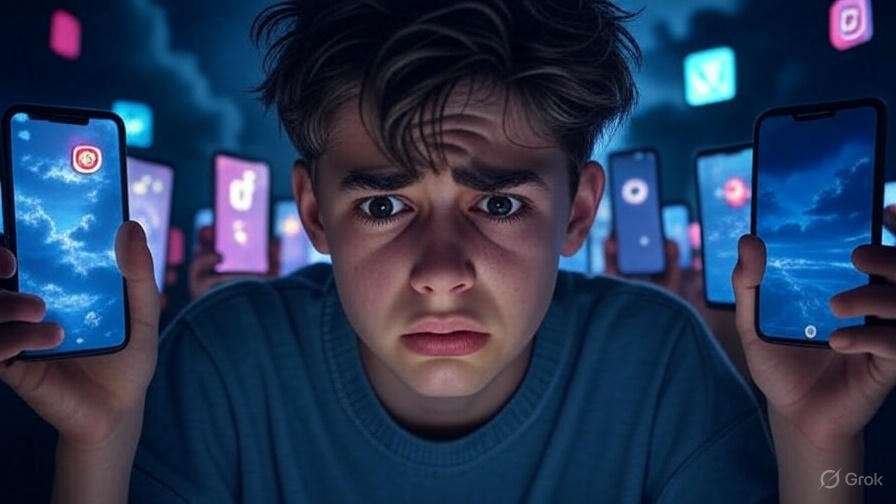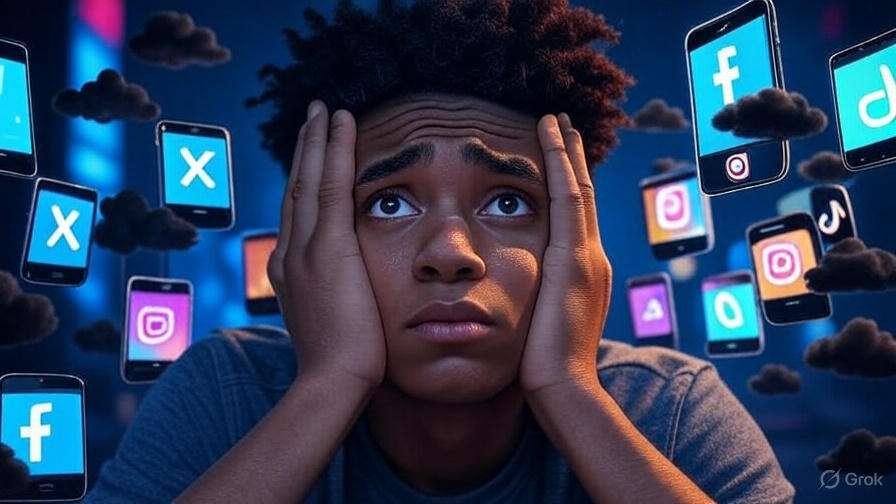Social Media and Mental Health have become central to America’s ongoing public health conversation. From teenagers battling anxiety to adults suffering workplace burnout, digital platforms are leaving an undeniable mark on U.S. society. Experts warn the mental health crisis linked to excessive screen time is worsening by the day.

📉 The Rise of Anxiety and Depression
Studies show that heavy social media use is strongly tied to depression, anxiety, and loneliness. According to Pew Research Center, 59% of American teens admit social media makes them feel pressured to appear perfect online.
Instagram filters, TikTok challenges, and the endless race for likes create a cycle of comparison that damages self-esteem. In turn, social media and mental health issues like body image disorders, sleep problems, and social isolation are spreading across the country.
👉 Related reading: How Daily Walking Transformed My Health in 30 Days
🧠 Why Social Media Fuels Stress in America
It’s not simply the hours spent online—it’s the way algorithms manipulate human behavior. Designed to maximize engagement, platforms feed users extreme content, toxic debates, and endless notifications.
The American Psychological Association notes that social media rewires the brain’s dopamine system, making it as addictive as gambling. This is why social media and mental health are now inseparable topics in U.S. healthcare discussions.
💔 The Teen Mental Health Crisis
Teenagers in the USA are the most vulnerable group. The rise in cyberbullying, online harassment, and peer pressure has coincided with an alarming increase in suicide rates.
Some states, including California and New York, have even considered lawsuits against social media companies for ignoring evidence of harm. Parents nationwide are now seeking therapy, digital detox programs, and stricter screen-time limits.
📱 The Impact on American Workers
The connection between social media and mental health doesn’t stop with teens. U.S. employees often face “always-on culture,” where Slack pings, emails, and LinkedIn notifications blur the line between work and personal life.
This pressure contributed to the Great Resignation, as workers abandoned traditional jobs for healthier lifestyles and flexible schedules.
⚖️ Searching for Solutions
The debate continues: can social media be fixed? Advocates are calling for stronger U.S. regulations—such as banning addictive design features, requiring transparency in algorithms, and limiting access for children.
Meanwhile, families are practicing small changes: phone-free dinners, weekend digital detoxes, and therapy to balance online life.
Home📰 Conclusion: Time to Act
The relationship between social media and mental health in the USA is too critical to ignore. As anxiety, depression, and loneliness climb, experts urge both personal responsibility and government action. Without change, America could face one of the biggest mental health challenges of this century.



